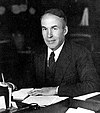This is an old revision of this page, as edited by 75.16.193.189 (talk) at 21:04, 22 October 2007. The present address (URL) is a permanent link to this revision, which may differ significantly from the current revision.
Revision as of 21:04, 22 October 2007 by 75.16.193.189 (talk)(diff) ← Previous revision | Latest revision (diff) | Newer revision → (diff) This article is about the art form. For the magazine, see Poetry (magazine).[[Image:Quatrain on Heavenly Mountain.jpg|thumb|right|300px|The Chinese poem "Quatrain on Heavenly MountainSome forms of poetry are specific to particular cultures and genres, responding to the characteristics of the language in which the poet writes. While readers accustomed to identifying poetry with Dante, Goethe, Mickiewicz and Rumi may think of it as being written in rhyming lines and regular meter, there are traditions, such as those of Du Fu and Beowulf, that use other approaches to achieve rhythm and euphony. In today's globalized world, poets often borrow styles, techniques and forms from diverse cultures and languages.
History
Main articles: History of poetry and Literary theory
]
Western traditions

This does not imply that poetry is illogical or lacks narration, but rather that poetry is an attempt to render the beautiful or sublime without the burden of engaging the logical or narrative thought process. English Romantic poet John Keats termed this escape from logic, "Negative Capability." This "romantic" approach views form as a key element of successful poetry because form is abstract and distinct from the underlying notional logic. This approach remained influential into the twentieth century.
During this period, there was also substantially more interaction among the various poetic traditions, in part due to the spread of European colonialism and the attendant rise in global trade. In addition to a boom in translation, during the Romantic period numerous ancient works were rediscovered.
Twentieth-century disputes

Some 20th century literary theorists, relying less on the opposition of prose and poetry, focused on the poet as simply one who creates using language, and poetry as what the poet creates. The underlying concept of the poet as creator is not uncommon, and some modernist poets essentially do not distinguish between the creation of a poem with words, and creative acts in other media such as carpentry. Yet other modernists challenge the very attempt to define poetry as misguided, as when Archibald MacLeish concludes his paradoxical poem, "Ars Poetica," with the lines: "A poem should not mean / but be."
Disputes over the definition of poetry, and over poetry's distinction from other genres of literature, have been inextricably intertwined with the debate over the role of poetic form. The rejection of traditional forms and structures for poetry that began in the first half of the twentieth century coincided with a questioning of the purpose and meaning of traditional definitions of poetry and of distinctions between poetry and prose, particularly given examples of poetic prose and prosaic "poetry". Numerous modernist poets have written in non-traditional forms or in what traditionally would have been considered prose, although their writing was generally infused with poetic diction and often with rhythm and tone established by non-metrical means. While there was a substantial formalist reaction within the modernist schools to the breakdown of structure, this reaction focused as much on the development of new formal structures and syntheses as on the revival of older forms and structures.
More recently, postmodernism has fully embraced MacLeish's concept and come to regard boundaries between prose and poetry, and also among genres of poetry, as having meaning only as cultural artifacts. Postmodernism goes beyond modernism's emphasis on the creative role of the poet, to emphasize the role of the reader of a text, and to highlight the complex cultural web within which a poem is read. Today, throughout the world, poetry often incorporates poetic form and diction from other cultures and from the past, further confounding attempts at definition and classification that were once sensible within a tradition such as the Western canon.
heaven i cannot rerach
Prosody
Main article: Meter (poetry)Prosody is the study of the meter, rhythm, and intonation of a poem. Rhythm and meter, although closely related, should be distinguished. Meter is the definitive pattern established for a verse (such as iambic pentameter), while rhythm is the actual sound that results from a line of poetry. Thus, the meter of a line may be described as being "iambic", but a full description of the rhythm would require noting where the language causes one to pause or accelerate and how the meter interacts with other elements of the language. Prosody also may be used more specifically to refer to the scanning of poetic lines to show meter.
Rhythm
Main articles: Timing (linguistics), tone (linguistics), and pitch accent- See also Parallelism, inflection, intonation, foot
- Christensen, A., Crisafulli-Jones, L., Galigani, G. and Johnson, A. (Eds). The Challenge of Keats. Amsterdam, The Netherlands: Rodopi, (2000).
- See, for example, Dylan Thomas's discussion of the poet as creator in Quite Early One Morning. New York, New York: New Directions Press, (1967).
- The title of "Ars Poetica" alludes to Horace's commentary of the same title. The poem sets out a range of dicta for what poetry ought to be, before concluding with its classic lines.
- See, for example, Walton Liz and Christopher MacGowen (Eds.). Collected Poems of William Carlos Williams. New York, New York: New Directions Publications, (1988), or the works of Odysseus Elytis.
- See, for example, T. S. Eliot's "The Waste Land, in T. S. Eliot. The Waste Land and Other Poems. London, England: Faber & Faber, (1940)."
- See, Roland Barthes essay "Death of the Author" in Image-Music-Text. New York, New York: Farrar, Straus & Giroux, (1978).
- Robert Pinsky, The Sounds of Poetry at 52.